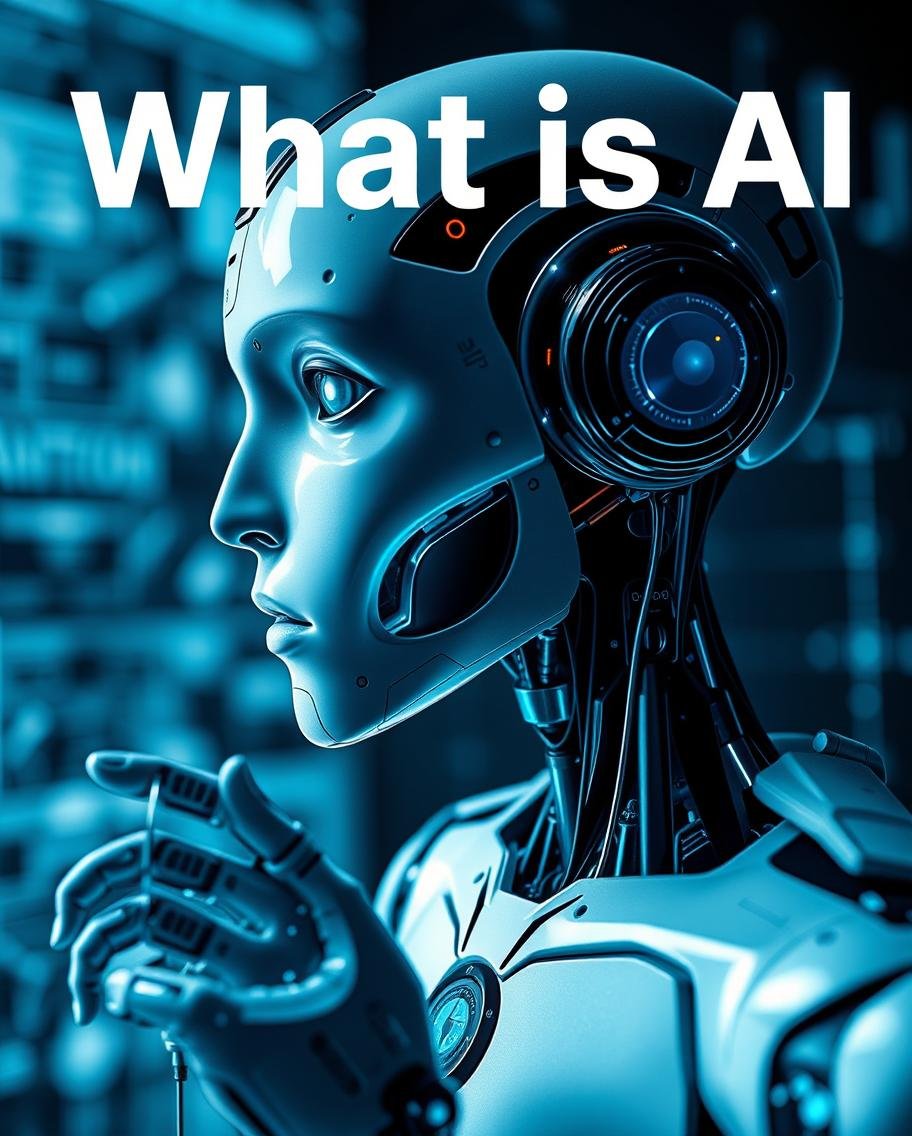What is AI?
AI stands for Artificial Intelligence. It is a technology that allows computers and machines to think, learn, and make decisions. Just like how humans use their brains to solve problems and learn from experiences, AI uses complex algorithms and data to perform tasks.
For example, when you talk to Siri on an iPhone or ask Alexa to play your favorite song, you are using AI. These virtual assistants understand your voice and respond to your questions or command.

How Does AI Work?
AI works by using large amounts of data to learn patterns and make decisions. Here’s a simple way to understand it:
- Data Collection: AI systems collect data from various sources. This data can be anything from pictures, sounds, text, or even numbers.
- Learning: AI uses this data to learn. It looks for patterns and tries to understand how things are connected. This process is called “machine learning.”
- Decision Making: Once AI has learned from the data, it can make decisions. For example, if you show an AI system many pictures of cats and dogs, it can learn to tell the difference between them.
Examples of AI in Everyday Life
AI is not just something from science fiction movies. It is a part of our daily lives. Here are some examples of how AI is used:
1. Smartphones
Your smartphone uses AI in many ways. When you use the camera, AI helps to improve the quality of your photos. It can also recognize faces and suggest tags for people in your pictures.
2. Online Shopping
When you shop online, AI helps recommend products you might like. It looks at what you have bought before and suggests similar items. This makes shopping easier and more fun.
3. Healthcare
In hospitals, AI helps doctors diagnose diseases. It can look at medical images like X-rays and find problems that might be hard for a human to see. This helps doctors to give better treatment to patients.
4. Video Games
AI makes video games more exciting. It controls the characters that you play against, making them smarter and more challenging. This makes the games more fun and interesting.
5. Transportation
AI is used in self-driving cars. These cars can drive themselves by understanding the road and avoiding obstacles. This technology is still being developed but has the potential to make driving safer.
Benefits of AI
AI has many benefits that make our lives easier and more efficient. Here are some of the key advantages:
1. Efficiency
AI can perform tasks much faster than humans. For example, it can quickly analyze large amounts of data to find patterns and make decisions. This saves time and effort.
2. Accuracy
AI systems can be very accurate. In healthcare, for example, AI can help detect diseases with high precision. This means better diagnosis and treatment for patients.
3. Convenience
AI makes our lives more convenient. Virtual assistants like Siri and Alexa can perform tasks like setting reminders, playing music, and answering questions. This makes everyday activities easier.
4. Innovation
AI drives innovation by solving complex problems. It helps scientists and researchers discover new things, leading to advancements in technology, medicine, and other fields.
Challenges of AI
While AI has many benefits, it also comes with challenges that need to be addressed:
1. Job Loss
One of the biggest concerns with AI is that it might replace human jobs. For example, self-driving cars could reduce the need for drivers. It is important to find ways to create new jobs and help people learn new skills.
2. Privacy
AI systems collect a lot of data, which raises concerns about privacy. It is important to ensure that personal information is protected and used responsibly.
3. Control
AI systems can become very powerful, and it is important to ensure that they are controlled and used ethically. There are concerns about AI being used for harmful purposes, and it is important to have regulations in place to prevent misuse.
The Future of AI
The future of AI is full of possibilities. As technology continues to advance, AI will become even more powerful and capable. Here are some ways AI might shape the future:
1. Education
AI can revolutionize education by providing personalized learning experiences. It can help students learn at their own pace and provide support in areas where they need improvement.
2. Healthcare
AI will continue to improve healthcare by providing better diagnosis and treatment options. It can also help in the development of new medicines and therapies.
3. Environment
AI can help address environmental challenges by monitoring and analyzing data related to climate change, pollution, and conservation efforts. It can help find solutions to protect our planet.
4. Everyday Life
AI will continue to make our everyday lives more convenient and efficient. From smart homes to advanced transportation systems, AI will be a key part of our future.
Conclusion
AI is a powerful technology that is changing our world in many exciting ways. It makes our lives easier, more efficient, and more convenient. However, it also comes with challenges that need to be addressed. By understanding and responsibly using AI, we can unlock its full potential and create a better future for everyone.
